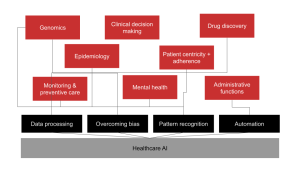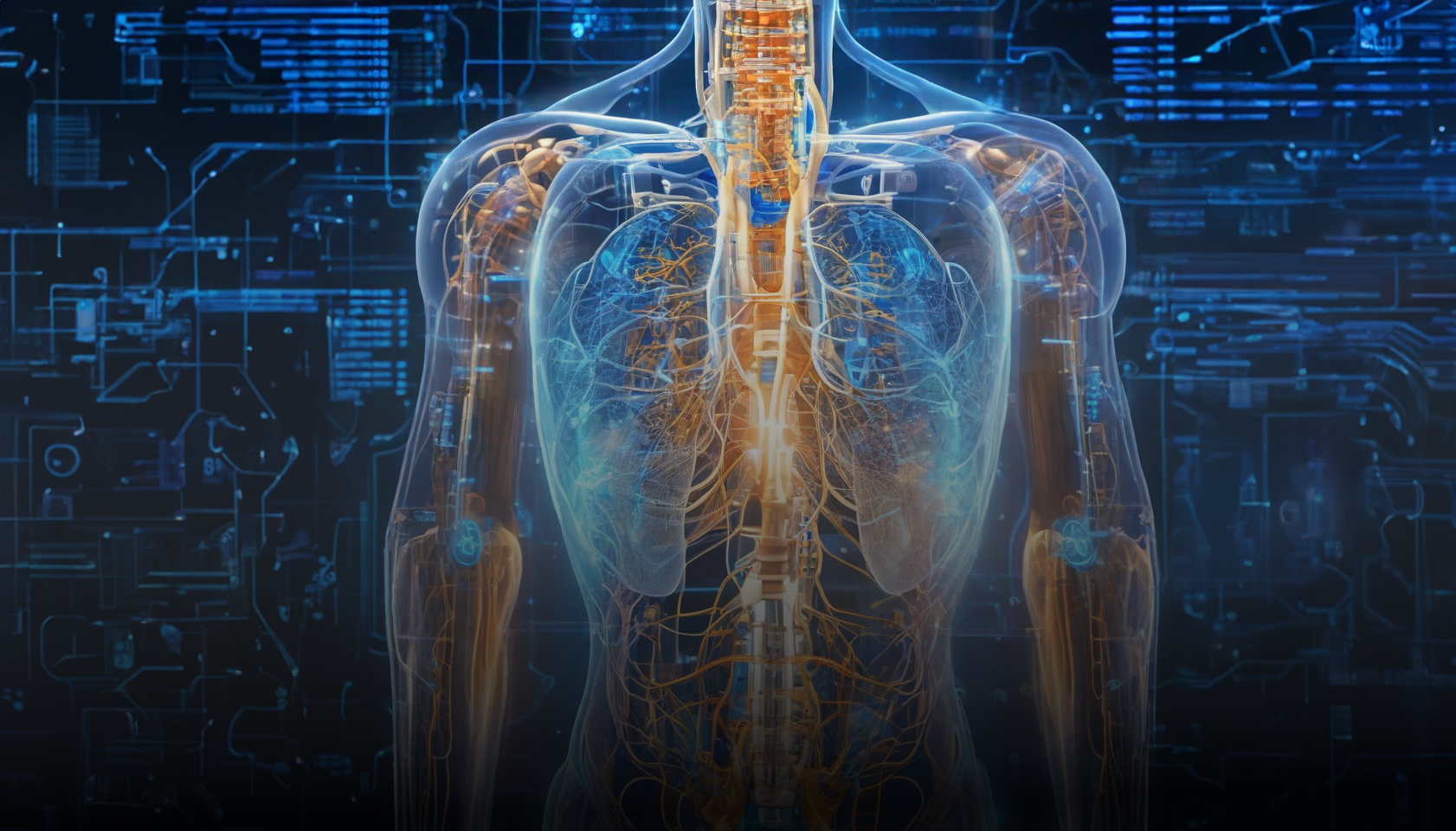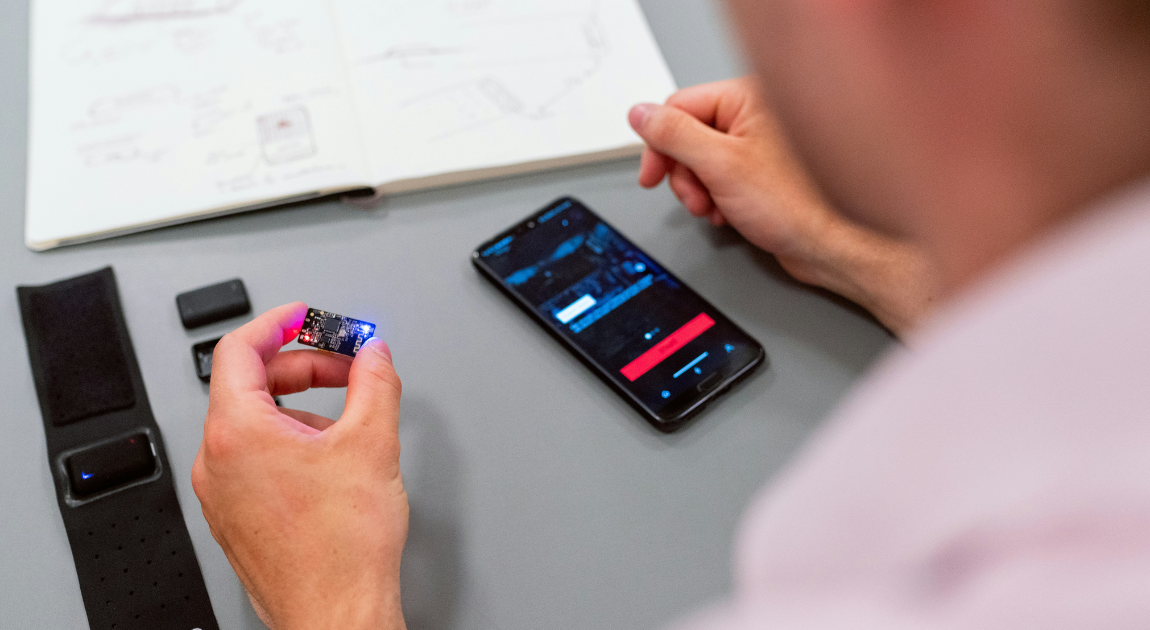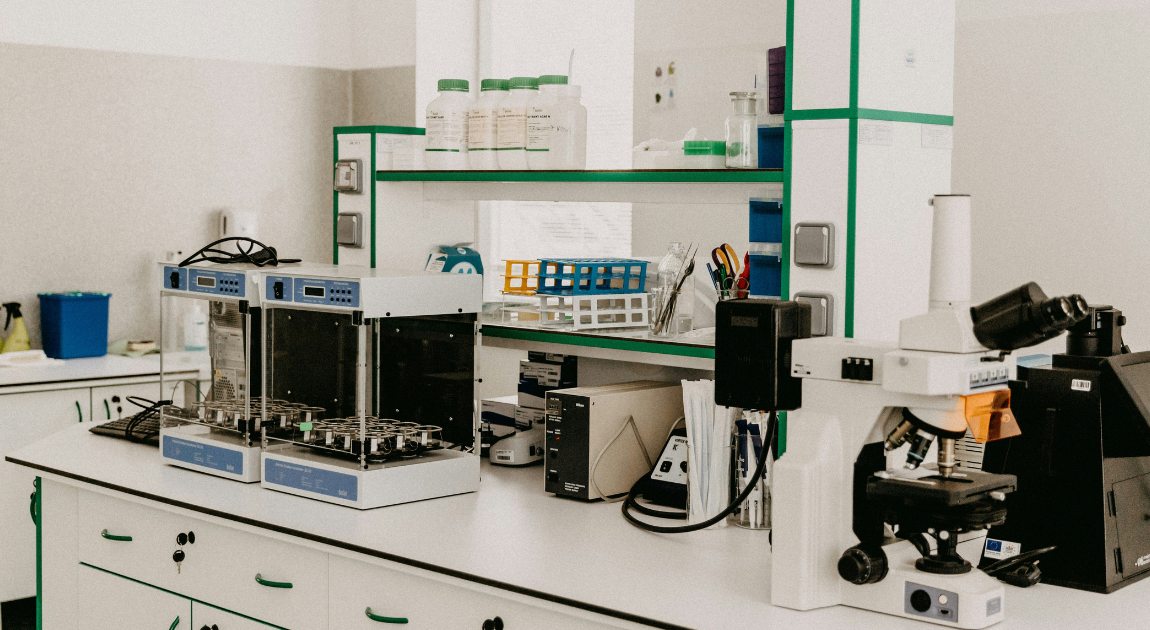If there’s one thing about AI that could be called predictable, it’s the overall hype. If there’s one that couldn’t, it’s what AI can actually do in a given field, healthcare being no exception. While we’re still a long way from medical droids à la Star Wars (remember, in the most noted scene they actually appeared they didn’t succeed), there are multiple applications of AI that can manage epic feats nonetheless: improve patient outcomes, streamline administrative processes, or assist in R&D. This blog post delves into the immense potential of AI in healthcare, exploring its current use cases, benefits, and the challenges that come with its implementation.
AI potential in improving healthcare
As skeptical as healthcare can (and should) be about innovations, AI is something that can really bring benefits to the table; not just the surgical one, but the regular one, as well. Advances in AI are enabling more precise diagnostics, personalized treatment plans, and efficient workflows. According to a study published by Accenture, AI applications in healthcare could save the industry up to $150 billion annually by 2026 in the U.S. alone.
As of now, there are hospitals employing AI to manage patient records, predict disease outbreaks, and even assist in complex surgeries. According to a report by Frost & Sullivan, AI systems in healthcare are expected to experience a growth rate of 40% through 2021, indicating a swift and vast increase in AI adoption.
Before we plunge into the actual applications of AI, though, let’s clarify the difference between the often interchangeable terms of AI, ML, and neural networks, so we can see what these mean for the industry in practice.
AI, ML, neural networks, deep learning: brief introduction
To start with the most hyped-up term,
Artificial Intelligence (AI) means the overall effort in simulating human intelligence, designed for machines to perform tasks that typically require human cognition. In healthcare, AI helps automate administrative tasks, enhance diagnostic accuracy, and facilitate personalized treatment plans.
Machine Learning (ML), means training algorithms to juggle large datasets so that they can learn to identify patterns and make predictions. For healthcare, ML can analyze patient data to predict disease outbreaks, assist in diagnosing conditions, and personalize patient care based on individual health profiles.
Neural networks are what makes ML humanlike: an effort to replicate actual neural cell interaction in the brain of a living thing (cat, dog, human – doesn’t really matter, the capacity surpasses all three combined.) Comprising interconnected nodes (neurons) that mimic brain functions, they can recognize complex patterns in medical images, such as X-rays or MRIs, aiding in more accurate diagnostics.
Deep Learning, a specific type of neural network with many layers, excels in handling large volumes of data and intricate pattern recognition. In healthcare, deep learning models can analyze thousands of medical images to spot abnormalities with a high degree of accuracy, often surpassing human experts. They are also crucial in advancements like voice recognition for patient documentation and sentiment analysis for mental health assessments.
Where, how, and why can AI be useful?
There’s a noticeable disparity among healthcare institutions, companies, and providers when it comes to adopting AI. While some make AI use into a major competitive edge, some choose to remain skeptical and cling to the old ways until “adoption is no longer an option”, as they say. And both are right in their own way: it’s never a good idea to adopt a technology for its own sake or for hype; rather, the right thing to do is to look at what exactly it can do for your routines and then pursue exactly that goal. What is it, then, that AI excels at so much that healthcare is adopting it? In short, there are three main things AI is inherently better at than humans could ever be in the observable future:
- Processing large amounts of data
- Recognizing patterns that rely on multiple variables that humans simply can’t keep track of all at the same timeutomating processes
- Automating processes
If we elaborate just a bit, then the list becomes as follows:
- AI’s ability to process immense amounts of data quickly and accurately is unparalleled. For example, AI systems like IBM Watson can analyze millions of medical journal articles and patient records in seconds. This capability enables healthcare providers to stay updated with the latest research and apply evidence-based practices. In essence, it’s like finally finding a journal article on exactly the topic you want immediately.
- In radiology, AI algorithms can already analyze medical images, identifying anomalies such as tumors or fractures with high precision. Studies show that AI can match or surpass human radiologists in diagnostic accuracy. Another application is predictive analytics, where AI can facilitate creating individual treatment plans, especially with oncology or orphan diseases. Yet another one is epidemiology, predicting outbreaks of disease across areas or demographics.
- AI can automate repetitive and time-consuming tasks, such as appointment scheduling, billing, and record-keeping. This automation reduces administrative burdens on healthcare professionals, allowing them to focus more on patient care. AI-powered chatbots also offer 24/7 support, answer common health queries, and even provide mental health counseling.

Use cases of AI in healthcare
Above, we’ve only scratched the surface of the possible applications of AI in healthcare – insofar as it reflected its general capabilities. Let’s now look at some of the more practical use cases and illustrate them where possible.
Data Management and Insights
AI simplifies the management of enormous healthcare data pools. For instance, IBM’s Watson can read 40 million documents in 15 seconds — a feat impossible for a human.
Beyond speed and accuracy, AI’s data management capabilities are crucial for advancing research and development. In genomics, AI can sift through complex genetic data to identify mutations and potential links to diseases, accelerating the path to new treatments and preventive measures.
Furthermore, AI’s ability to handle unstructured data—such as doctors’ notes, social media posts, and patient feedback—adds another layer of depth to data analysis. Natural Language Processing (NLP) techniques can extract meaningful insights from these sources, enriching the data pool and providing a more nuanced understanding of patient outcomes and treatment efficacy.
Monitoring and Preventive Care
A study by the Mayo Clinic found that AI algorithms could predict hospital readmissions with up to 80% accuracy by analyzing EHR data, thus not only providing for better care but saving quite a lot for institutions, HCPs, and insurance companies.
There are similar developments in diabetes management, where AI systems like Google’s DeepMind have shown the potential to predict acute kidney injury in diabetic patients 48 hours before it occurs. Meanwhile, AI-powered apps such as HealthTap use machine learning to analyze patient symptoms in real-time, offering recommendations and alerting users to seek medical attention if necessary.
AI is also being used to monitor chronic diseases. For example, Propeller Health employs AI-driven inhaler sensors to monitor asthma and COPD, providing users and doctors with actionable insights to manage conditions better. Additionally, AI models used in telemedicine platforms analyze patient data to provide early warnings on health issues, facilitating timely interventions.
Administrative Functions
Healthcare administrative tasks, such as billing, scheduling, and maintaining patient records, are a notable problem that distracts HCPs from primary tasks, and also decelerates patient engagement. A study by McKinsey estimates that AI could save between $90 billion and $120 billion annually by automating administrative tasks in healthcare. For instance, AI-powered chatbots and virtual assistants can handle appointment scheduling, manage patient inquiries, and send reminders, reducing the workload on administrative staff.
Furthermore, AI can streamline billing and coding processes by accurately classifying diagnoses and procedures, minimizing errors and reducing claim denials. An example is the use of Natural Language Processing (NLP) to extract relevant information from unstructured data, improving the accuracy of medical billing.
Drug Discovery
AI has shown good results in the drug discovery process by virtue of analyzing vast amounts of biological data and predicting how various compounds will interact with targets. For example, Google’s DeepMind achieved a significant breakthrough by using AI to predict the structure of proteins with unprecedented accuracy. AI models can simulate millions of molecular interactions in a fraction of the time it would take traditional methods, identifying promising candidates faster.
Companies like Insilico Medicine are employing AI to analyze genetic data and disease pathways, identifying novel drug targets and potential treatments. Additionally, AI-driven platforms such as Atomwise use deep learning algorithms to predict the binding affinities of drug candidates to target proteins, streamlining the initial screening process and increasing the likelihood of successful outcomes.
AI for Patient Experience and Adherence
Patient adherence and patient centricity have long been popular buzzwords, but actual measures have been mostly taken by either governmental organizations or larger pharma companies. With the advent of AI, other sides of the healthcare process can afford it, too. For example, personalized health apps such as MyTherapy and Medisafe can remind patients to take their medications, schedule follow-up appointments, and adhere to their prescribed routines, reducing the risk of non-compliance.
There are also AI-driven platforms like Ada Health that can analyze symptoms and provide recommendations, directing patients to appropriate care based on real-time data. According to Juniper Research, AI-powered health assistants could save the healthcare sector $3.6 billion by 2022 through the reduction of unnecessary clinic visits and improved patient compliance.
These virtual assistants also support chronic disease management by continuously monitoring patient data and providing alerts when abnormalities are detected, facilitating early interventions. Furthermore, they can personalize health advice based on individual patient data, thus offering tailored recommendations that improve health outcomes.
Clinical Decision Making
AI algorithms support healthcare professionals by providing evidence-based recommendations for diagnosis and treatment, significantly enhancing clinical decision-making. For example, PathAI uses machine learning to analyze pathology images, improving the accuracy of cancer diagnosis by up to 93%. This heightened accuracy aids pathologists in identifying malignancies with greater precision, leading to more effective treatment plans.
AI also assists in personalized medicine by analyzing genetic and patient data to recommend tailored treatment options. For instance, Tempus uses AI to provide oncologists with personalized cancer treatment plans based on genetic sequencing data.
AI for Mental Health
At first, it seems that if there’s a category within healthcare that AI will never have a chance in, it’s navigating the human soul (a.k.a. psychology.) However, while robots are, of course, lacking in human empathy, it’s a good thing because that means they also lack personal, emotionally charged biases. The practical applications in mental health are essentially derivatives of that fact.
For example, NLP and sentiment analysis technologies can analyze patient communications to detect early signs of mental health issues, offering a proactive approach to mental health care (see, no robots sitting by the couch listening to childhood stories!) Instead, by processing text or speech data from various sources such as emails, chat messages, and social media posts, these AI technologies can identify indicators of anxiety, depression, and other mental health concerns. For example, platforms like Crisis Text Line use NLP to analyze text messages in real-time, prioritizing high-risk cases for immediate support.
Benefits of AI use in healthcare (so far)
Inclusivity
AI-driven platforms can translate and interpret medical information across multiple languages, making healthcare more accessible to diverse populations. For instance, Google Translate’s medical expansion can comprehend more than 100 languages. This inclusivity ensures that non-English-speaking patients receive the same level of care and information as their English-speaking counterparts.
Burnout reduction
Healthcare professionals face high levels of burnout. AI can alleviate this by taking over repetitive and mundane tasks, such as data entry and scheduling. A study by the American Medical Association (AMA) found that physicians who use AI-assisted documentation tools report a reduction in workload by 17%. This allows doctors and nurses to focus on more meaningful interactions with patients, reducing stress and improving job satisfaction.
Providing Patient Experiences in a Mobile-Driven World
Telemedicine and mobile health apps, powered by AI, have transformed how patients interact with healthcare providers. These technologies offer convenience and immediacy, allowing patients to consult with healthcare professionals from the comfort of their homes. For example, the telehealth platform Amwell saw a 300% increase in usage during the COVID-19 pandemic. AI enhances these platforms with features like symptom checkers, appointment reminders, and personalized health advice.
Challenges of AI implementation in healthcare (so far)
Of course, there are challenges, as well, and those who work in the respective areas could probably have already sensed where they lie. This is what the AI startups are dealing with right now, laying the framework for future wider adoption.
First, there are legal and regulatory challenges. AI systems often navigate complex medical data, making it crucial to ensure compliance with privacy laws such as the General Data Protection Regulation (GDPR) in Europe and the Health Insurance Portability and Accountability Act (HIPAA) in the United States. Ensuring the security and confidentiality of patient data is paramount. Regulatory bodies like the FDA are still developing frameworks to evaluate the safety, efficacy, and reliability of AI tools in healthcare, which can delay their deployment.
AI in healthcare also raises several ethical issues. One of the primary concerns is bias (not the human kind, but human-derived in the long run); that’s because algorithms get training data as their “food”, leading to disparities in diagnosis and treatment outcomes across different demographic groups. Ethical questions also arise regarding the transparency of AI decision-making processes. It is vital for clinicians to understand how AI arrives at its conclusions to ensure trust and accountability (and everyone who’s tried to make ChatGPT tell them how exactly they solve a simple quadratic equation knows what the matter is).
Despite advances, AI technologies are not infallible. Machine learning models may sometimes produce incorrect or misleading results, which can have severe implications in a medical context. Continuous monitoring, validation, and updates are essential to maintain the accuracy and reliability of AI systems.
Parting thoughts
As healthcare is an industry that traditionally has to deal with a much higher level of responsibility than, say, retail, the AI developments here are oriented towards bringing as much value as possible with as little risk as possible. Which is actually good: what healthcare AI has achieved can then be translated to other industries as success cases in terms of security and practicality.
And the benefits have already outweighed the drawbacks: a modest investment into the security and robustness of an AI-powered system can mitigate the risks of having a burnt out staff of HCPs, or false assumptions at the beginning of either the treatment or drug discovery process.
As a company that has collaborated with healthcare a lot, including within the AI category, Lionwood is ready to offer a consultation to get your AI-driven project started. Contact us whenever you feel the day has come to benefit from our expertise in implementing healthcare AI projects that drive the entire industry towards a better future.














